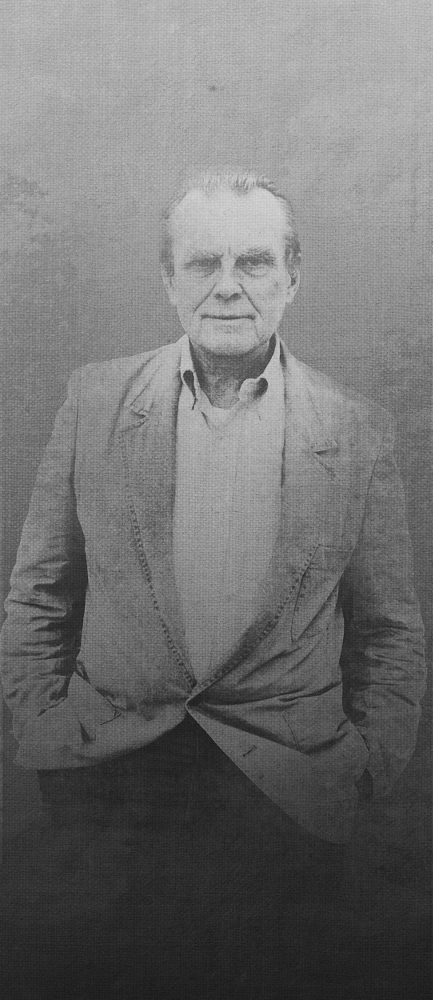 Czesław Miłosz
Czesław Miłosz
poet, novelist and essayist, winner of the Nobel Prize for Literature
(born on 06.30.1911 in Szetejnie, died on 08.14.2004 in Kraków)
Today we say goodbye to the poet, but we do not say goodbye to his poetry. The poetry will surely survive all of us who are present here and those who are absent... - Wisława Szymborska's speech at the funeral of Czeslaw Miłosz
Fifty-six years. That's how long it took until Poland finally got its second, after Władysław Reymont, Noble Prize for Literature. The dry spell was broken by Czesław Miłosz in 1980.
Miłosz's fatherland was Lithuania. It was here that he was born and spent his youth. The poet's literary debut came in the year 1930. Vilnius magazine Alma Mater Vilnensis published two of his poems, written in bold, avant-garde form. This style of poetry accompanied Miłosz throughout the early stage of his work, when he was a part of the famous group Żagary, an association of young and rebellious Vilnius poets.
After a short stay in Paris, Miłosz published his first collection of poetry - a book called Poemat o czasie zastygłym (Poem about frozen time) (1933), which gained critical acclaim. Thanks to a stipend, the poet could return to France for a year. The fascination with this country proved to be crucial in the later stage of his life.
In the late thirties Miłosz tried to work in the Polish Radio in Vilnius and Warsaw. However, his staunch left-wing views were the reason why he did not stay there for long. In parallel, he continued his poetic work, cooperating with literary magazines.
His creative work did not stop even during the war. While he was staying in occupied Warsaw, he created poems under the pseudonym Jan Syruć and conducted illegal publishing activities. Thanks to the efforts of Miłosz, an anti-Nazi poetry anthology called Pieśń niepodległa (Invincible Song) was published.
After the war, the poet began his career as a diplomat, serving as cultural attaché in the US. American style of thinking prompted Miłosz to write his most famous work – Traktat Moralny (The Moral Treaty) (1948), in which talked about the moral role of the poet in society.
In 1951 Miłosz broke all relations with Poland, not agreeing with the way that power was exercised in the country. He resigned from diplomacy and obtained asylum in France. There he wrote a collection of nine essays, The Captive Mind (1953). They are an expression of criticism of the communism and its devastating impact on life and its values. Other works of his French period include, among others novel The Issa Valley, autobiographical essay Family Europe and the Treaty Poetic.
In 1960 Czeslaw Miłosz settled in the US, where he spent the next thirty three years. His poetic work was combined with a position as a lecturer of literature at the University of California. Miłosz's works from this period are much more calm, even spiritual, and stand in contrast to his earlier works. In the seventies, the poet took up the translation of the Bible.
1980 was a turning point in the artist's life. He was awarded the Nobel Prize for Literature for his uncompromising insight into revealing the threats to man in a world of violent conflicts. The sudden explosion of Miłosz's popularity caused that books of his poetry were published in Poland - for the first time since 1945. In 1981 the poet visited his home country. Again, he did so in 1989 in the final days of communism.
From 1993, Miłosz established a permanent residence in Kraków, where he spent his last eleven years. He wrote until the end of his days. In 1997 he published Piesek przydrożny (Road-side dog), for which he received a literary award Nike. He followed it up with: To (That) (2000), Druga przestrzeń (Second Space) (2002), Orfeusz i Eurydyka (Orpheus and Eurydice) (2002). In 2001 Miłosz's third and final treaty was published - Traktat o teologii (The Treaty of theology).
The poet died in 2004. He was buried in the Crypt of the Notables in The Church on the Rock in Krakow.
Do you know?
- In 1941 Miłosz was forced to make a living as a janitor at the University of Warsaw.
- Books of Miłosz are internationally renowned. They have been translated into 44 languages.
- The poet was awarded the Order of the White Eagle (1994) - the highest Polish state distinction. He also received the title of Righteous Among Nations (1989).
- Due to his extreme left-wing views, some people accused Miłosz of anti-Polish sentiment and sympathizing with communism.
- Miłosz was famous for healthy distance to himself. When he got hungry shortly after receiving the Nobel prize, he asked to be given a ride to a nearby McDonald's.
- The famous movie The Pianist by Roman Polański was supposed to be created fifty years earlier. The screenplay for it was written by Miłosz, who personally knew Władyslaw Szpilman. The rapid intervention of censors caused the poet to cease his work on the project. The film, with significant propaganda changes, saw the light of day in 1950 entitled Miasto nieujarzmione (The City untamed).






